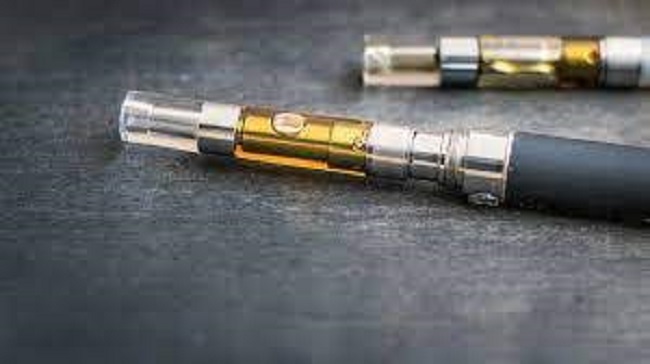
An environment focused non-governmental organisation, Corporate Accountability and Public Participation Africa (CAPPA), has renewed its call against electronic cigarette smoking also known as vaping.
CAPPA issued the call even as a foreign entity has recently sought a business collaboration to establish the manufacture and distribution of vaping products in Nigeria, Ghana, South Africa, and Europe.
According to CAPPA, such deals set out to promote cannabis and fashion culture.
However, Nigeria presently classifies cannabis as an illicit substance due to its potential to worsen the country’s challenges with drug proliferation, abuse, and narco-terrorism.
CAPPA, in a statement, warned that such business collaboration is likely to engender aggressive marketing of cannabis vaping and e-cigarettes, including vape pens, e-hookahs, JUULs, and other electronic nicotine delivery systems (ENDS), which will further worsen the nation’s non-communicable diseases (NCDs) burden.
CAPPA’s Executive Director, Akinbode Oluwafemi said: “The vape deal is one of the strategies by the tobacco and related industries to use social and cultural influencers to create the impression that vaping is safe, especially among young, upwardly mobile Nigerians.”
However, contrary to what its promoters would have the public believe, CAPPA pointed out that vapes are banned in no fewer than 34 countries. Some others including the United States and China, which permit vapes, impose heavy regulations on their use.
In January, British Prime Minister Rishi Sunak announced plans to ban disposable vapes in The United Kingdom to protect children’s health and discourage its rising use among teenagers.
Oluwafemi, criticised the tobacco industry’s relentless efforts to make its products appealing to vulnerable groups by producing e-cigarettes in a variety of attractive colours and flavours and using socialites to promote them.
He noted that despite claims that e-cigarettes contain fewer of the over 7,000 toxic chemicals found in smoke from regular cigarettes, aerosols from e-cigarettes still contain harmful and potentially dangerous substances, including nicotine, volatile organic compounds, heavy metals like lead, and carcinogens.
Akinbode added: “E-cigarette promoters claim their products can help people quit smoking. However, evidence shows that these so-called alternatives to tobacco smoke, including vapes, are not healthy at all.
“They are all part of the tobacco industry’s tricks to trap victims, especially young persons, in their web of death and disease. Nicotine used in vapour products is highly addictive and can damage your heart, arteries, and lungs, increasing the risk of heart attack, stroke, and chronic lung disease.
“Just early this month, a study by the American College of Cardiology investigating possible links between vaping and heart failure found that people who use e-cigarettes are significantly more likely to develop heart failure compared with those who have never used them.”
CAPPA noted that the tobacco industry is desperately notorious for its unlawful tactics to recruit new users of its products, so that its shareholders can enjoy immoral profits.
At the same time, the public is left to bear the huge financial and health burden of diseases and economic losses caused by their products.
CAPPA’s Policy and Research Analyst, Zikora Ibeh urged Nigerians and the government to watch out for more of such industry tricks and plots to undermine the hard-won victories of tobacco control efforts.
She said, “There is a latest spin to the tobacco industry. They are flooding black markets with new nicotine products touted as safer alternatives and fashionable. Sadly, these products are just as lethal as any other conventional offerings by them.
“They also reinforce a behavioural pattern that can dissuade smokers from quitting while initiating a new generation of non-smokers, particularly children and adolescents to take up smoking and vaping. We urge the government and public health advocates to step up vigilance against these deadly products and deceitful claims of the industry.”
Full Story: Navy raises alarm over rising cases of stowaways in Nigeria waters
Source: